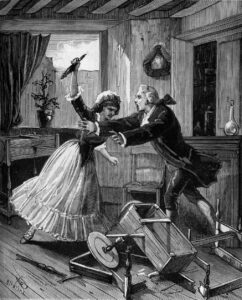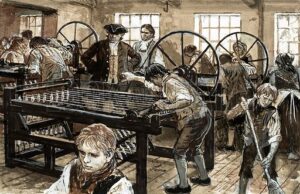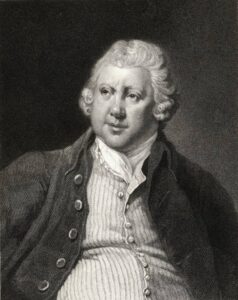- Share
- Private Message
- Report
- prev
- next
My Story
Richard Arkwright: Pioneer of the Industrial Revolution Richard Arkwright, born on December 23, 1732, in Preston, England, emerged as a pivotal figure in the Industrial Revolution due to his groundbreaking contributions to the textile industry.
Starting his career as a barber and wig maker, Arkwright's inventive spirit led him to develop the water frame in 1769, a revolutionary spinning machine that utilized water power to mass-produce strong, durable cotton threads.
This invention marked a significant advancement over earlier machines like James Hargreaves' spinning jenny, as it enabled the efficient production of high-quality yarn on a large scale, catalyzing the growth of the textile industry and laying the foundation for modern manufacturing. Arkwright's entrepreneurial acumen was as notable as his inventive prowess. He established several mills, most famously the Cromford Mill in Derbyshire, which became a model for factory-based textile production.
By implementing a factory system that centralized production and utilized unskilled labor, Arkwright significantly reduced costs and increased output, which, in turn, transformed the textile industry and contributed to the broader economic shifts of the Industrial Revolution. Despite facing numerous legal challenges and disputes over his patents, Arkwright's business strategies and innovations solidified his reputation as a key architect of industrialization. Beyond his professional achievements, Richard Arkwright's legacy is intertwined with the profound societal changes of his era.
His inventions not only revolutionized textile manufacturing but also had far-reaching effects on labor practices, urbanization, and economic development. Arkwright passed away on August 3, 1792, but his influence endures, as his pioneering work laid the groundwork for the modern industrial landscape. His life and accomplishments exemplify the transformative power of innovation and entrepreneurship during one of history's most dynamic periods.




Add a comment